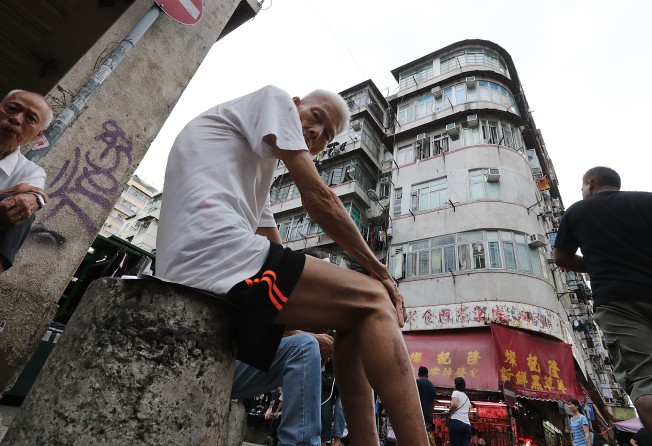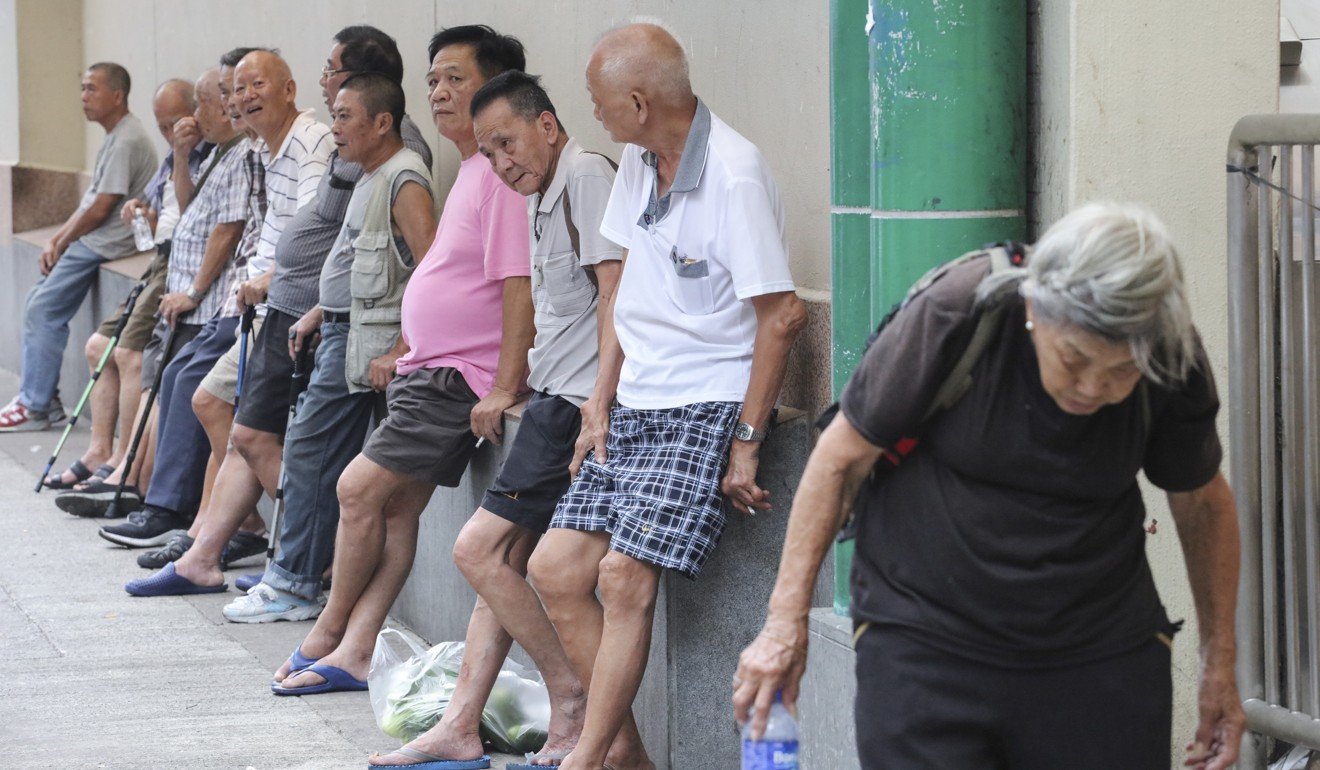
One building in new Hong Kong housing estates could be set aside for elderly, surveyors say
Buildings could be designed as one-stop shops for all the daily needs of those over 60 years old, Institute of Surveyors proposes

The time has come for the Hong Kong government to launch a housing scheme for the elderly to deal with a rapidly ageing middle-class population, the city’s surveyors have said.
The Hong Kong Institute of Surveyors proposed that officials begin requiring private developers to set aside a building for the elderly in some new residential estates in exchange for waivers to land premiums or other incentives.
The idea was put forward in a policy report released by the institute on Thursday.
These buildings would be designed as a one-stop shop for all the daily needs of those over 60 years old, with flats, activity and rehabilitation centres, a health clinic and nursing home all under one roof.
The flats would not be sold. Instead, senior citizens would be required to pay a lifelong rent of between HK$1.9 million and HK$2.9 million to live in homes ranging from 226 sq ft to 441 sq ft.
If for health reasons they later needed to move into nursing homes, they would get back 30 per cent of their lifelong rental fee to go towards care home fees.

The institute said the government had neglected to include housing as part of an “ageing in place” policy aimed at taking care of a rapidly greying population.
“Government policies targeted at the elderly population cover the provision of nursing homes, medical care and other subsidies – the only thing that isn’t included is housing,” the institute’s housing policy panel chairman Chan Cheung-kit said.
“The elderly who are eligible for public housing are already taken care of by the Housing Authority. As a whole, the government has to consider those who are not eligible for public housing – the middle income group – which is the biggest income group in the population ... who will also get old one day.”
Almost one in three people in Hong Kong will be aged 65 or above by 2034, census projections show. The number of elderly residents is expected to surge 120 per cent to reach 2.3 million by then.

Chan said the scheme would not affect overall housing supply targets. Much of the new housing already being planned in the city would go to the middle class who would eventually grow old anyway, he said. The government could also work with non-profit organisations to allow them to expand their developments to build elderly housing.
Another possible solution would be to require property developers to reserve 10 per cent of a project’s gross floor area for flats with elderly-friendly designs. Such homes would have sufficient space and access for wheelchair users along with handrails and non-slip floor tiles in bathrooms.
“Current private flats being built are getting smaller. Senior citizens who use a walking stick or who are in a wheelchair will not even have enough space to turn around in a flat,” Chan said.
Non-profit organisations have already launched similar projects as pilot schemes.
The city’s second largest housing provider, the Housing Society, introduced Hong Kong’s first lifelong rental flats for the elderly at Tanner Hill in North Point in 2015.
The government is also considering proposals to force developers to build nursing homes and day care centres for the elderly by including these requirements in land leases when selling land to developers.